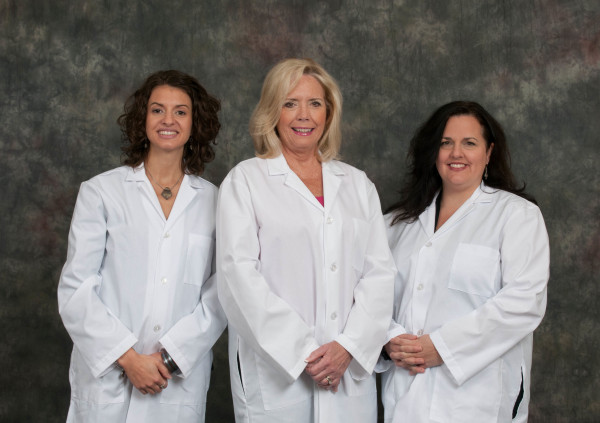Perinatal behavioral health program supports women through ‘darkest time’

Along with delivering world-class prenatal, delivery and postpartum care, Christiana Care strives to provide one of the most important gifts of all to mothers and their new babies — peace of mind.
It’s the peace of mind that comes with knowing that help is readily available, if needed, when learning to cope with a new little bundle of joy makes a mom feel less than joyful.
As many as 20 percent of women suffer pre- or postpartum mood disorders, including depression, anxiety or obsessive compulsive disorder (OCD), and psychosis. With nearly 6,500 babies born at Christiana Hospital last year alone, that could mean more than 1,000 women in our community struggle a little — or significantly — with the adjustment to parenthood.
Through the Center for Women’s Emotional Wellness, Christiana Care supports women throughout pregnancy, delivery and the first year after birth with outpatient therapy and medication management. To mothers Jessica Coyne, of Smyrna, and Julie O’Neill, of Middletown, the program has been a lifesaver.
O’Neill’s older daughter will soon celebrate her 10th birthday. When her baby was first born, O’Neill experienced postpartum depression to the point where she checked herself into a psychiatric facility for help.
“I knew I wasn’t feeling right,” she said. “All I wanted was to have my life back the way it was … before.”
Doctors at that facility wanted O’Neill to attend a day treatment program for several weeks.
“I remember thinking I couldn’t possibly be in day treatment for that long,” she said. “I had an infant at home.”

Fortunately, she was referred to Christiana Care, where she met Janet M. Brown, APRN, BC, a nurse practitioner specializing in psychiatry. The day of her first appointment with Brown also happened to be the day a weekly support group met for women like O’Neill who were struggling with what felt like far from a blessed event.
“To walk in that room and hear other women going through the same things, it helped me realize I wasn’t an awful person. I was just struggling,” she said. “Something in me was chemically imbalanced, but it wasn’t me.”
Coyne’s story of postpartum OCD began not immediately after giving birth, but shortly before her daughter’s first birthday, almost eight years ago.
She, too, was concerned enough about the feelings she was experiencing to check herself into a psychiatric facility. Like O’Neill, she, too, is grateful to have been referred to Christiana Care for ongoing support.
“I had awful thoughts that I just couldn’t control, and I was afraid I would hurt someone,” she said. “I just didn’t understand what was happening to me.”
Her lifeline was Brown’s reassurance: “You’re going to be fine. You’re not going to hurt anyone.” It also helped tremendously to meet another woman in the support group who had experienced the very same feelings and was doing better.
“This was the only group available in Delaware, the only place where anyone understood what I was going through,” said Coyne. She describes that period as a “very dark time” in her life. “Janet and that support group brought me out of it.”
Coyne and O’Neill are so appreciative of the support they received through Christiana Care that they’re in the process of creating their own outreach group to help young mothers in need.
“I know there are other women going through this,” Coyne said. “I want them to know that it’s normal. It’s something nobody talks about, but more people than you could ever imagine are going through it. Call a hotline. Seek help. You’re going to be OK.”
Malina R. Spirito, PsyD., MEd, a licensed psychologist with Christiana Care’s program, is encouraged by significant growth in the number of women reaching out for assistance. Last year, the team consulted with 262 new mothers in the hospital immediately following delivery and helped about 400 women through outpatient visits.
“Social support is such an important aspect for recovery,” she said.
Integrative approach blends behavioral health, obstetrical care
Postpartum depression is so prevalent, says Brown, that it is now the number one complication of childbearing.
To help identify women who need help, the program’s clinicians Brown, Spirito and social worker Megan O’Hara, LCSW, are embedded in the Women’s Health building, as Brown describes, “right here where the action is around the OB providers.”
This integrative approach, embedding behavioral health specialists within medical practices, is achieving great success throughout the health system in specialties such as cancer, heart and vascular care, internal medicine, pediatrics and primary care. The on-site consultation service is convenient, confidential and helps patients avoid the stigma of separately seeking out mental health care.
Christiana Care screens all new mothers for mood and anxiety symptoms after childbirth, before they leave the hospital. All women who receive prenatal care or deliver at Christiana Care receive information about postpartum depression to self-refer themselves to the program, if the need arises. No physician referral is needed. The team also works with women during pregnancy to reduce risks for premature deliveries and low birth weights. These sometimes include poor health habits that can come from struggling with mood or anxiety issues.
For women who are taking psychotropic medications to manage depression or anxiety, the team also works with their physicians to manage those medications before and during pregnancy, as well as after birth during breastfeeding.
“Not taking medication in pregnancy is not necessarily risk-free, either,” Brown says.
Spirito adds that the team works closely with the Department of Psychiatry for consultations on particularly complicated cases.
Brown, who has worked in the psychiatric field for 30 years, says working with young mothers is her favorite part of the job.
“Seeing mothers feel better, enjoy their infants and go on to be content with their lives is very rewarding,” she said.
Spirito agrees. “We get to have such widespread impact on the overall health of a whole family, even if we only work with the mom. When they’re feeling better, their relationships with their partners and children are better, too.”
O’Neill, now the mother of two (she worked with Brown through her second pregnancy, as well), seconds that sentiment, adding that society makes women feel like having a baby is supposed to be the happiest time of their lives, but for many, it’s the hardest time.
“It was the worst time of my life,” she said. “But this program pulled me through it, and I wouldn’t change having my daughters now for anything.”